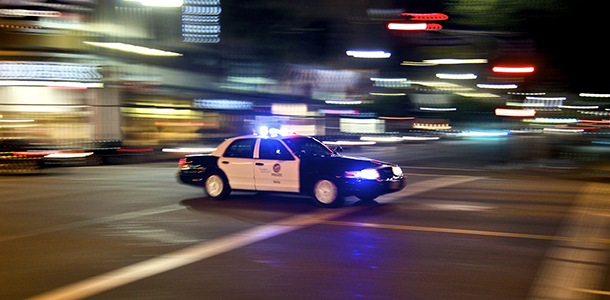
(Photo Credit: Steve Lyon/Flickr)
In the last week of September, two separate police incidents ended with the death of an individual experiencing a mental health crisis. In both cases, it was a relative who called the police for help. The incidents in El Cajon and Pasadena are tragic examples of how police response to mental health emergencies must be improved.
The Los Angeles Police Department's Mental Evaluation Unit (MEU), started in 1992, has been dedicated to avert these types of situations. When field officers respond to a 911 call and determine they have someone in a mental health crisis, they call the MEU triage desk to deploy a System-wide Mental Assessment Response Team (SMART) to the scene.
The SMART unit consists of a specially trained LAPD officer and a clinician from the Los Angeles County Department of Mental Health. This team’s goal is to work with that individual and divert them to a mental health facility, instead of booking them into jail.
“People with mental illness aren’t criminals,” said LAPD Lt. Brian Bixler, who heads the department’s MEU. “Mental health emergencies are medical health emergencies.” But during these emergencies, 911 is usually the first call and police officers are the first on the scene.
Just one week before the two incidents occurred, Lt. Bixler and his team presented their work to the state Mental Health Services Oversight and Advocacy Commission’s (MHSOAC) regional meeting in Los Angeles. The purpose of the meeting was to discuss the intersection of mental health and the criminal justice system. The commission heard from a variety of stakeholders including mental health consumers, families and advocates as well as law enforcement, courts and mental health agencies. The results of the meetings, which will be held throughout the state, will result in policy recommendations next year.
At the LAPD, training to deal with the mentally ill begins in the academy with how to de-escalate situations. After 11 months in the field, each officer goes through a four-day training at the MEU on recognizing mental illness, learning that it is not a choice and breaking down the stigma.
“We don’t train tactics in our class,” said Lt. Bixler. “We talk a lot about stigma reduction, crisis de-escalation, verbal de-escalation skills. We have them actually meet families – families that have had a loved one meet a tragic end and some that haven’t.” This training will help the field officer better understand and recognize a mental health emergency versus a criminal act. MEU partners with agencies such as the National Alliance on Mental Illness to teach the classes.
LAPD’s MEU also includes the Case Assessment Management Program (CAMP), which tracks mentally ill individuals who frequently use emergency services. Since 2005, this unit has also worked with the Los Angeles County Department of Mental Health to monitor and engage those individuals using a case management approach to link them to services.
Additionally, the CAMP team keeps a database, so that the triage desk can use past mental health episodes to determine course of action. The database also has insurance information, which allows the SMART unit to take the individual to the correct facility instead of using much needed space at county facilities.
According to NAMI, pre-booking diversion programs such as MEU reduce the number of re-arrests by nearly 60 percent, dramatically lowering the need for jail and county hospital beds. The LAPD and Los Angeles County have recognized how valuable MEU is to the community by doubling the number of officers in the unit as well as resources in the past year.
It’s a step in the right direction, but, according to Lt. Bixler, more work needs to be done: “I wish that people didn’t have to call 911 when their loved one was in a mental health crisis. I wish it was two clinicians that could go out there and deal with it before it gets to the point of violence.”

